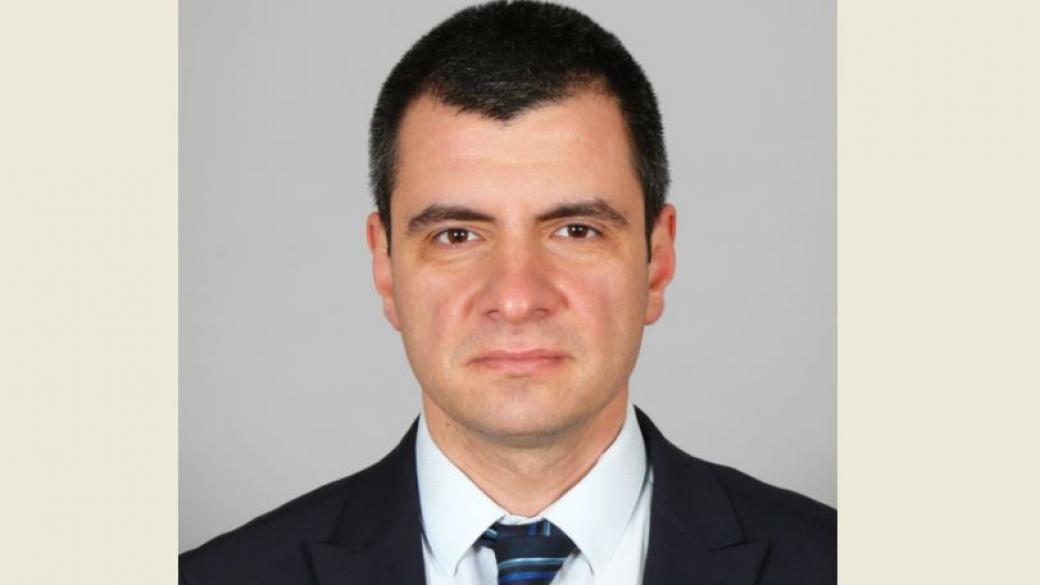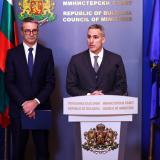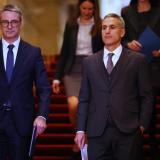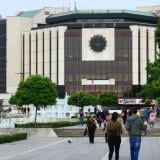Публични финанси
Saving Is a Way of Thinking
People tend to invest if they see an opportunity that gives them the desired combination of risk, profitability and liquidity, Ivan Ivanov says

~ 5 мин.
The investment activity of people is low. On the other hand, the amount of the deposits is growing, and at the end of April 2019, it exceeded BGN 52.7 billion. In comparison to April 2018, the increase is 9%. Regardless of the almost zero interest rates on bank deposits, citizens continue to trust banks with their money. The reasons are: security (deposits of up to BGN 196 thousand are ensured) and liquidity (money can be withdrawn – with a maximum of three-day notice if the amount is big). There are many other forms of investment that bring much higher profitability but most people do not know about them.
With Ivan Ivanov, Director of Retail Banking Directorate at the Bulgarian-American Credit Bank, we talk about savings and investment activity*:
Mr. Ivanov, what is saving?
It’s a way of thinking. There are two types of people – ones who save and ones who consume. When we have goals before us and we need a larger amount of money, we start putting aside some of our monthly earnings, so that at one point we can fulfil our desire. If the money is not enough, a credit can also be used.
You have been involved in retail banking for 15 years now. Do you find the saying “Many a little makes a mickle” true?
I deal with loans and deposits, and I see that some clients can save prudently, while others, even with good income, have not put aside any money. Saving is an internal feeling about how to manage income and plan costs.
“A penny for a rainy day” is another popular saying, even in Bulgaria. Is saving inherent in Bulgarians?
It is inherent, and BNB data show it, even though the interest rates are now low. This was also shown by the results of the study we recently conducted. People save on a long-term basis – mostly to ensure a better standard of living after retirement. I am a supporter of saving money in the “A penny for a rainy day” option. Money should be spent on good occasions.
Your explanation – why savings are growing?
Some people like to have a financial buffer for foreseen or unforeseen circumstances. Our studies show that money is saved for child education, home purchases, or initial mortgage payment for а better retirement income...
What kind of signal is the growth of deposits in your opinion?
People believe in the banking system and are looking for security for their money. Clients do not make deposits for investment purposes, but for protection against losses.
What is typical for investments?
They have three components – profitability, flexibility and risk, and each investment is a combination of all of them. The higher risk usually leads to higher profitability. Where there is no risk, it is hard to expect profitability.
What should people invest in?
It all depends on the amount of funds they have. If they have higher income, they should diversify their investments and invest their money in different things, with clear understanding of the risk they are taking. With less money, focus on lower-risk instruments. I would advise them to choose a bank deposit. The deposit is the most secure and the most liquid investment. I don’t think it is wise to put all your money in a high-risk instrument.
Do you trust Peer-to-Peer investments?
I observe them carefully, but for me this is an alternative with a very high risk. They offer different profitability – ranging from 6-7% to 10-12%, which is risk-related. To get 10-12% return on your investment, the user of your funds must have paid more than that. Given that banks are lending at 4.5-5% interest, this means for me that their borrowers have a higher risk profile. The liquidity of money in such platforms is also not so high.
The investments in cryptocurrencies are also growing. What is the reason in your opinion?
This topic is very extensive. I personally look at such investments as gambling. The courses of cryptocurrencies have very large amplitudes. You can win or lose huge amounts in just one day. The value of currencies is determined by supply and demand, but their primary purpose is to be a means of payment rather than investment.
Is there a way for people to be prompted to invest their money rather than just keep it in bank deposits?
We are convinced that it is good for money to flow into the real economy, but people need to see an alternative that gives them the desired combination of risk, profitability and liquidity. Banks are also willing to lend, but they are interested in funding only good projects.
What does investment activity depend on?
In a crisis, people postpone their plans for purchases, they postpone their investments. When the crisis ends, they wait for another year or two to make sure that the economy goes up. Big players do the opposite – when everyone sells – they buy, and when everyone buys – they sell.
What would you say about those who love to save?
I congratulate them for taking care of a liquidity buffer when the situation changes. It is their decision whether to invest. And to people who consume, I will recommend to allocate funds to meet unforeseen circumstances. To my clients applying for a loan, I suggested first trying to live a few months by putting away the deposit they would have to pay. In this way, they would know if they will be able to live with the rest of their income, and they will have a small amount of saved money.
How do you encourage businesses to invest?
With innovative products, attractive guarantee schemes, with good conditions for companies that have ambitions but also potential.
In what kind of a period do we find ourselves in terms of investment?
People have already accumulated money. For quite some time, the economy has been in a positive trend. We are now at a stage of investment and consumption, but people are generally more cautious. All participants in the process have learned their lesson from the irrational investments we have witnessed until 2009.
*The material is not a recommendation for an investment decision.

















